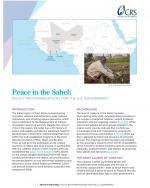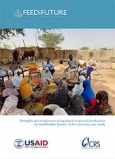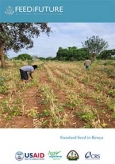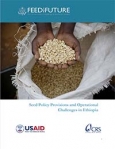Learning Briefs | January 3, 2023
Peace in the Sahel: Policy Recommendations for the U.S. Government
Introduction
The Sahel region of West Africa is experiencing increased violence and extremism, weak national institutions, and shrinking natural resources, which have contributed to the displacement of millions of people who have left their homes in search of security. Despite the current crisis in the region, the Sahel has a rich history of peace and stability and there is significant hope for development in the future. Catholic Relief Services (CRS) has well-established programs in the most affected countries of Mali, Niger, and Burkina Faso, as well as in the potentially at-risk coastal countries of Ghana and Cote d’Ivoire and has established a new Sahel Peace Initiative (SPI). Based on the unique insights stemming from CRS’ deep-rooted partnership in the region, we provide policy recommendations on what the role of the U.S. government (USG) should be to best work towards a peaceful and prosperous Sahel.
Policy Recommendations
PROGRAMMING
- Integrate Social Cohesion and Peacebuilding elements into humanitarian and development programs.
- Support youth through economic opportunities and education.
- Increase funding and support for humanitarian assistance in the Sahel.
PARTNERSHIP
- Strengthen the legitimacy and role of local government and local civil society to increase sustainability and accountability.
- Leverage public trust in religious institutions and leaders through interfaith programming.
PROTECTION
- Prepare for the potential spread of conflict through early warning systems for violence.
- Improve civilian protection through the accountability of security forces.
- Work through diplomatic and other channels to improve humanitarian access and urge respect for humanitarian principles by armed actors.
Read the two page policy brief for the full recommendations.





